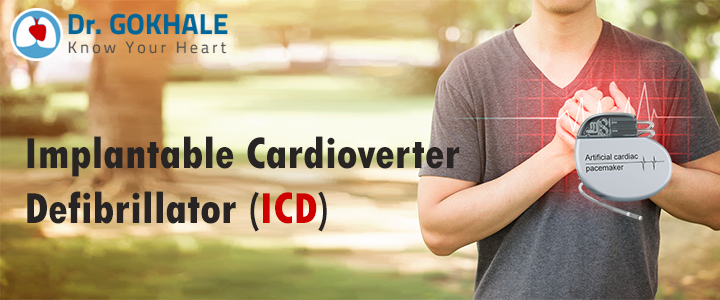According to a recent study conducted, it is estimated that close to 20 million people around the world face issues related to the heart and related conditions. This is the primary reason why the demand for premium cardiac surgeons in Hyderabad has increased significantly. Experts such as Dr. Gokhale specialize in offering solutions to heart related conditions with the effective incorporation of modern techniques like implantable cardioverter defibrillators.
An ICD is a small device which is inserted under the skin of a patient through a surgical procedure. This device helps to monitor and regulate the heartbeat and its rhythm. The device is also responsible for providing effective shocks when there is any abnormal rhythm detected. It is typically used for patients who are at a higher risk of cardiac arrest or arrhythmias (abnormal heart rhythms).
How does an ICD work?
An ICD constantly monitors the heart’s electrical activity. If an ICD detects an abnormal rhythm (dangerously fast) and delivers small bursts of electrical current to restore the normal heartbeat. The shock is delivered with the help of wires connected to the heart. ICD can be programmed according to the patient’s needs to deliver different types of therapy. Mostly the ICD pacemaker provides pacing therapy to regulate the heart’s rhythm.
Who needs an ICD?
ICDs are typically recommended for patients who are at risk of sudden cardiac arrest or arrhythmias.
Patients who may benefit from an ICD include:
- Patients with prior heart attacks: Patients who have a reduced EF ( Ejection Fraction ) benefit from an ICD as it prevents sudden cardiac arrest.
- Patients at risk of Heart Failure: Patients who are at risk of heart failure have been shown to improve survival rates with the help of an ICD.
- Genetic conditions: Patients suffering from genetic conditions such as arrhythmogenic right ventricular dysplasia are at an increased risk of cardiac arrest.
How is an ICD placed?
The patient is made to lie on their back. A cardiothoracic surgeon in Hyderabad gives anesthesia to numb the area where the incision will be made. An incision usually 2 to 3 inches is made in the upper chest. Heart surgeons create a pocket beneath the skin and muscle of the chest wall to place the ICD. The leads are then inserted through the patient’s veins into the heart chambers. The leads are then connected to the ICD generator. Healthcare professionals do ensure whether the system is working properly or not. The incision is then closed with the help of stitches and is covered with a bandage.
ICD treatment requires the involvement of a healthcare professional as ICD requires surgical implantation, continuous monitoring, programming the ICD, and managing the complications that may occur in the long run. Therefore, if you are looking for the best heart transplant doctors in Hyderabad, then be sure to collaborate with Dr. Gokhale.
Being in the medical industry for several years, Dr. Gokhale is a noted name and is amongst the top heart surgeons in the city who has performed countless ICD surgeries successfully with minimal complications. Seek assistance from Dr. Gokhale today to find immediate solutions.














